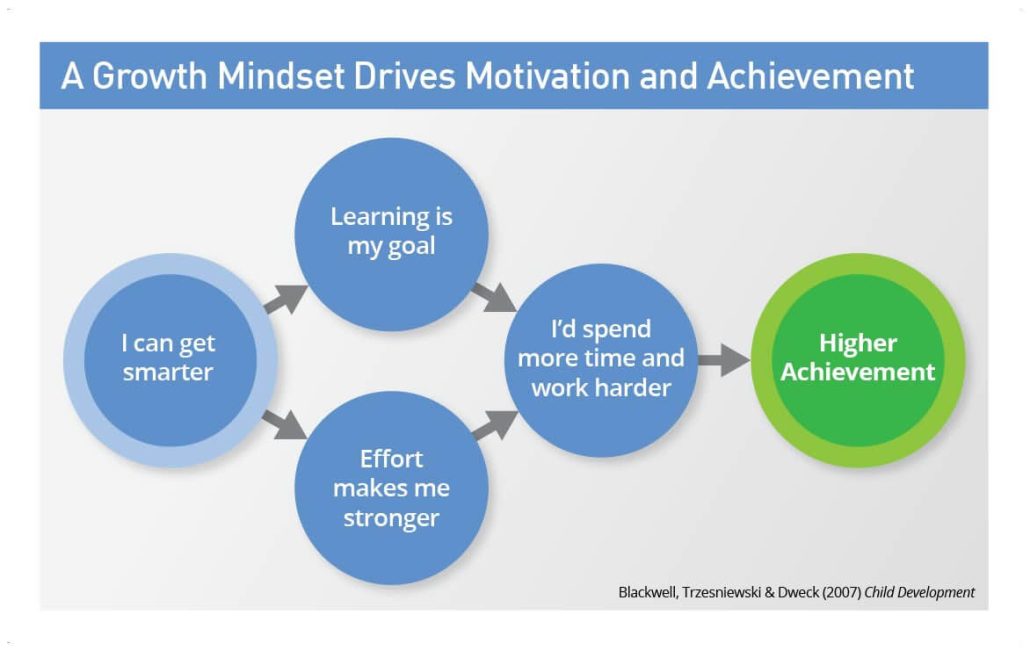
In today's rapidly evolving digital landscape, the intersection of human potential and artificial intelligence presents both unprecedented challenges and extraordinary opportunities. As AI systems transform industries and reshape professional roles, cultivating a growth mindset has never been more crucial for personal and organizational success.
Understanding Growth Mindset in the AI Era
The concept of a growth mindset, pioneered by psychologist Carol Dweck, suggests that abilities and intelligence can be developed through dedication, hard work, and resilience. In the context of AI advancement, this philosophy takes on new dimensions and significance.
Unlike a fixed mindset, which views intelligence as static and unchangeable, a growth mindset embraces challenges and sees effort as the path to mastery. This perspective is particularly valuable as we navigate the integration of AI tools that are fundamentally changing how we work, learn, and solve problems.
The Synergy Between Human Learning and AI Capabilities
AI systems excel at processing vast amounts of data, identifying patterns, and executing specific tasks with precision. However, they lack the human capacity for emotional intelligence, ethical judgment, and creative innovation. By adopting a growth mindset, individuals can focus on developing these uniquely human strengths while leveraging AI as a powerful complement to their capabilities.
This symbiotic relationship between human and machine intelligence represents a new frontier in professional development, where continuous learning becomes not just advantageous but essential.
Key Elements of Developing a Growth Mindset with AI
Embracing Technological Fluidity
A growth mindset in the AI era requires comfort with technological evolution and the ability to adapt to new tools and systems. Rather than viewing AI advancement as threatening, forward-thinking professionals see it as an opportunity to expand their capabilities and focus on higher-value work.
Prioritizing Continuous Learning
The accelerating pace of technological change means that skills and knowledge have shorter half-lives than ever before. Professionals with growth mindsets commit to lifelong learning, regularly updating their expertise and developing new competencies that complement AI capabilities.
Cultivating Collaborative Intelligence
The most effective implementation of AI involves humans and machines working together, each contributing their distinct strengths. This collaborative intelligence approach requires individuals to understand both the capabilities and limitations of AI systems while developing the interpersonal skills needed to work alongside these tools.
Benefits of a Growth Mindset in the AI Age
- Enhanced adaptability to technological disruption
- Improved problem-solving capacity through human-AI collaboration
- Reduced anxiety about automation and job displacement
- Greater career resilience and versatility
- Increased capacity for innovation and creativity
Challenges to Overcome
- Initial discomfort with new technological paradigms
- Need for continuous skill development and learning
- Balancing technical knowledge with distinctly human capabilities
- Overcoming ingrained fixed mindset perspectives
- Managing information overload and digital fatigue
Practical Strategies for Cultivating a Growth Mindset with AI
Embrace Productive Failure
View mistakes and setbacks when learning new AI tools as valuable opportunities for growth rather than evidence of inability. Productive failure builds resilience and deepens understanding of both technological systems and personal learning processes.
Develop T-Shaped Expertise
Combine deep knowledge in a specialized area with broader understanding across multiple domains. This T-shaped expertise enables professionals to contextualize AI capabilities within their field while recognizing opportunities for cross-disciplinary application.
Practice Intentional Experimentation
Allocate time for structured exploration of new AI tools and approaches. Small-scale experiments create low-risk opportunities to develop familiarity with emerging technologies while building confidence in human-AI collaboration.
Cultivate Cognitive Flexibility
Develop the ability to shift between different thinking modes—analytical, creative, empathetic—to complement and enhance AI capabilities. This mental agility allows professionals to navigate complex problems that require both computational power and human judgment.
Real-World Applications Across Industries
Healthcare: Diagnostic Partnership
Medical professionals with growth mindsets are partnering with AI diagnostic tools, combining algorithmic analysis with clinical experience to improve patient outcomes. Rather than viewing AI as a replacement, these practitioners see it as an enhancement to their expertise.
Education: Personalized Learning Ecosystems
Forward-thinking educators are integrating AI-powered adaptive learning platforms to personalize instruction while focusing their human attention on mentorship, critical thinking development, and emotional support—areas where the human touch remains irreplaceable.
Creative Industries: Augmented Innovation
From design to content creation, professionals with growth mindsets are using AI as a collaborative partner that handles routine elements while they focus on conceptual innovation and emotional resonance that truly connects with audiences.
Looking Forward: The Growth Mindset Advantage
As AI continues to evolve and integrate into virtually every aspect of professional life, a growth mindset will increasingly distinguish those who thrive from those who merely survive technological transformation. By embracing challenges, persisting through obstacles, and seeing effort as the path to mastery, individuals can position themselves at the forefront of the human-AI partnership.
The most successful professionals in the AI era will be those who recognize that their greatest asset is not static knowledge but rather the capacity to learn, adapt, and grow alongside increasingly sophisticated technologies. By developing this mindset now, you can ensure your skills remain relevant and valuable in a rapidly changing landscape.
Discover More About Thriving in the AI Era